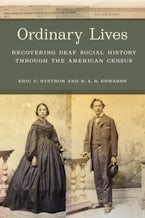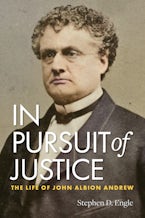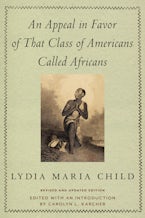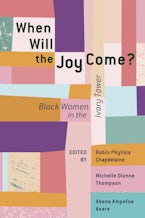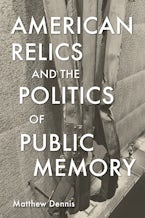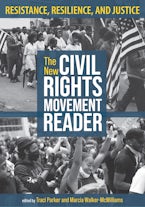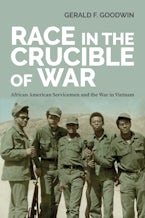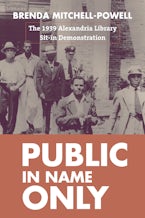- Home
- Festivals of Freedom

Festivals of Freedom
Memory and Meaning in African American Emancipation Celebrations, 1808-1915
by Mitch Kachun
Published by: University of Massachusetts Press
360 Pages
Other Retailers:
With the abolition of the transatlantic slave trade in 1808, many African Americans began calling for "a day of publick thanksgiving" to commemorate this important step toward freedom. During the ensuing century, black leaders built on this foundation and constructed a distinctive and vibrant tradition through their celebrations of the end of slavery in New York State, the British West Indies, and eventually the United States as a whole. In this revealing study, Mitch Kachun explores the multiple functions and contested meanings surrounding African American emancipation celebrations from the abolition of the slave trade to the fiftieth anniversary of U.S. emancipation.
Excluded from July Fourth and other American nationalist rituals for most of this period, black activists used these festivals of freedom to encourage community building and race uplift. Kachun demonstrates that, even as these annual rituals helped define African Americans as a people by fostering a sense of shared history, heritage, and identity, they were also sites of ambiguity and conflict. Freedom celebrations served as occasions for debate over black representations in the public sphere, struggles for group leadership, and contests over collective memory and its meaning.
Based on extensive research in African American newspapers and oration texts, this book retraces a vital if often overlooked tradition in African American political culture and addresses important issues about black participation in the public sphere. By illuminating the origins of black Americans' public commemorations, it also helps explain why there have been increasing calls in recent years to make the "Juneteenth" observance of emancipation an American—not just an African American—day of commemoration.
Excluded from July Fourth and other American nationalist rituals for most of this period, black activists used these festivals of freedom to encourage community building and race uplift. Kachun demonstrates that, even as these annual rituals helped define African Americans as a people by fostering a sense of shared history, heritage, and identity, they were also sites of ambiguity and conflict. Freedom celebrations served as occasions for debate over black representations in the public sphere, struggles for group leadership, and contests over collective memory and its meaning.
Based on extensive research in African American newspapers and oration texts, this book retraces a vital if often overlooked tradition in African American political culture and addresses important issues about black participation in the public sphere. By illuminating the origins of black Americans' public commemorations, it also helps explain why there have been increasing calls in recent years to make the "Juneteenth" observance of emancipation an American—not just an African American—day of commemoration.
"Festivals of Freedom is a very good study of how African Americans have sought to use public space and the public sphere to advance freedom and equality."—Indiana Magazine of History
"Scholars of African American, intellectual, and cultural history will welcome Kachun's judicious study of the variety and complexity of nineteenth and early twentieth century emancipation celebrations. . . . In clear, crisp prose, Kachun explains the varieties of freedom festivals and assesses their diverse meaning to whites and blacks alike."—History: Reviews of New Books
"Kachun begins the long overdue project of restoring African American commemorations to their proper place in the civid live of nineteenth century America. His particular focus is emancipation celebrations, but his book addresses American and African American historical memory more broadly. . . A superb book that provides an essential foundation for subsequent scholarship on the topic."—Civil War Book Review
"Kachun recaptures the reality of blacks' presence in public space, and their determination to assert a black-inclusive version of U.S. history . in addition , the author sensitively recounts conflicting black viewpoints on the making and maintaining of a commemorative tradition, as well as regional variation in the making and keeping of that tradition. . . . Substantially advances our knowledge of black organizations and interactions in the creation of a black commemorative tradition."—Choice
"Drawing upon a diverse array of primary sources, . . . Kachun provides an impressive analysis of how African American leaders used freedom celebrations to create a collective memory, to uplift the race, and, more importantly, to claim their political rights."—American Quarterly
"Kachun traces a distinctive era in the formation of African American institution of memory and activism in his examination of the phenomenon of freedom festivals, which proliferated in the years 1808-1915. . . . Kachun deftly teases out the complexity of this history. He chronicles simultaneous flux and continuity in the freedom festival tradition and illustrates organizers' difficult task of creating a distinct African American identity while attempting to demonstrate the inherent Americanness of African Americans to the broader society. . . . Highly recommended to readers interested in African American history, the transition from slavery to freedom, and broader questions about the construction of African American historical consciousness and the making of history."—Journal of American History
"A major contribution to black culture, . . . filling in a historical gap about African American festivals of freedom that have too long escaped our calendar of celebrations."—African American Review

